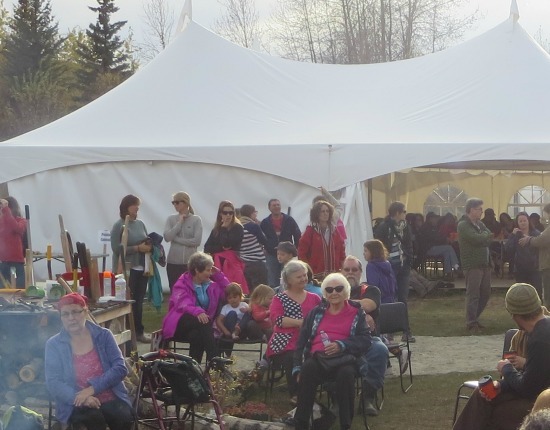Teaching & Working Farm School Project
In March 2017, Tr’ondëk Hwëch’in First Nation (TH) completed their Teaching and Working Farm School project.
TH is working toward substantially increasing Yukon First Nations’ ability for food production. This will contribute to First Nations’ and community food security and self-sufficiency.
As part of their efforts, the First Nation has established a northern “on-the-land” Farm School program that will effectively teach applied agricultural knowledge in a practical way. In 2016, 20 students learned about the production of market crops, forage crops and livestock farming, as well as traditional food systems.
There were no academic entrance requirements at the Farm School. Instead, entrance was based on desire, displayed interest, and natural ability.
Accommodation was provided on the farm. The school created a healthy, healing, safe and rewarding “on-the-land” environment where First Nation citizens and others learned, worked and built stronger determination in self-confidence, self-sufficiency and determination.
The Farm School program will be open to all Yukon First Nation communities. While the majority of students in the first year will be TH, there will also be students from three other Yukon First Nations.
Initially, the program will be delivered by Yukon College as a non-academic continuing education program. It will consist of approximately 430 hours of formal classroom instruction and 600 hours of paid practicum experience (i.e. field work on the farm).
The school will also incorporate dual credit opportunities for a number of secondary school students who will be provided with on-the-land farming exposure and introduction to the importance for food security. Four secondary students will be earning credits on the farm this first summer.
Science driven options for credit offerings will be created later in the TH Farm School’s life, as the demand and capacity presents itself.
